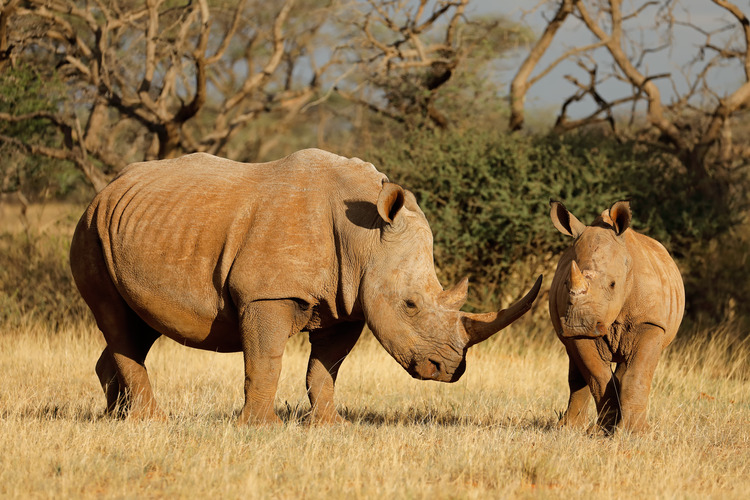
African Parks has bought 13% of the world’s remaining southern rhinos from a failed captive breeding programme
Across the world rhino are in trouble. Demand for rhino horn, which is used in traditional Chinese medicine and as a status symbol, has risen dramatically since 2007. There have been many attempts to safeguard the world’s rhinos but, despite the use of ever more sophisticated security and surveillance equipment, the killing continues.
South African, John Holme, 81, who made his fortune through the construction of time-share resorts, was worried about a future without rhinos. So, in 2009, he set up Platinum Rhino on a 7,800-hectare ranch in South Africa. Starting with 200 rhinos, he launched an intensive breeding programme. This original group has now grown to a population of 2,000 southern white rhinos – which amounts to 13 per cent of the world’s surviving southern white rhino population.
Related links:
Holmes idea was that from this herd around 100 rhino would be released back into the wild each year in order to ease pressure on shrinking rhino populations. But, because of the huge amount of security required, keeping rhinos is an expensive business and to be economically viable the project was financially reliant the lifting of a worldwide ban on the selling of rhino horn.
In order to make the rhinos less interesting to poachers, rhinos at the ranch had their horns shaved and Hume hoped that if the ban on the trade of rhino horn were lifted then he would be free to sell his stock pile of shaved horns which would – so the logic went – both flood the rhino horn market so making rhino poaching less attractive, and give him the income he needed to continue running the ranch.
It was an approach that divided conservations, but in the end, the ban was not lifted and Platinum Rhino found itself unable to pay the bills.
In April of this year the ranch, and all the rhino within it (but not the shaved rhino horn that had been kept in storage) was put up for auction. Although there were reportedly several interested parties, when the auction closed on 1 May there were no official bids.
Now though, conservation NGO, African Parks, have announced that they have come to an agreement to buy Platinum Rhino. A press release from African Parks states that the breeding programme at Platinum Rhino will end and that over the next decade all 2,000 rhinos will be released back into the wild in suitable and secure environments.
Although this sounds like a highly ambitious programme, if anyone can pull it off then its African Parks. One of the biggest conservation groups working in Africa today, African Parks is an NGO that takes on the rehabilitation and management of struggling national parks and other protected areas.
They currently manage some 20 million hectares of land spread across 22 national parks and protected areas in 12 African countries from Benin to Mozambique and Chad to Angola. And what’s more, they have an impressive record in rewilding having already translocated 8,000 animals of 32 different species to help repopulate protected areas across Africa. And, coincidently, one of the species they have the most experience of rewilding is rhinos, which they have already successfully re-introduced to parks in Rwanda, Democratic Republic of Congo and Malawi.



